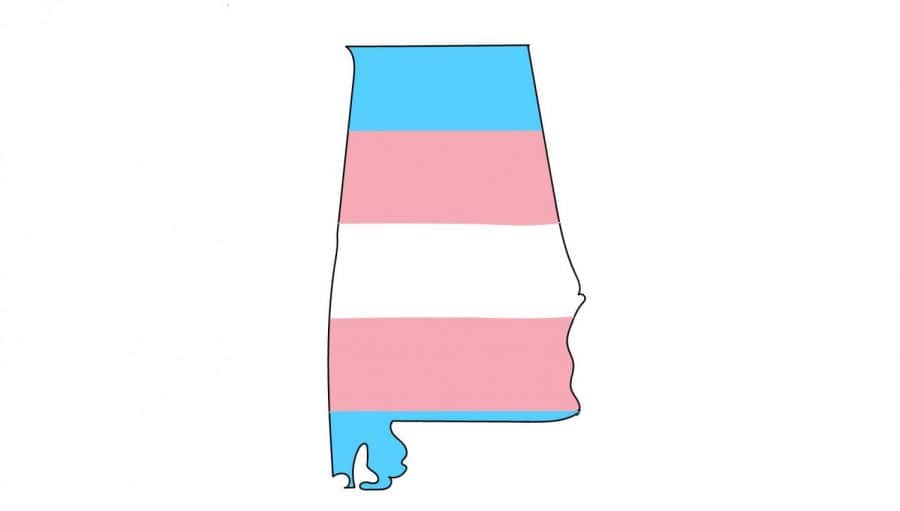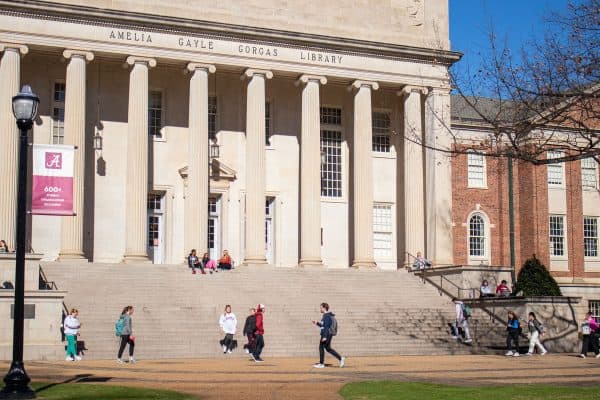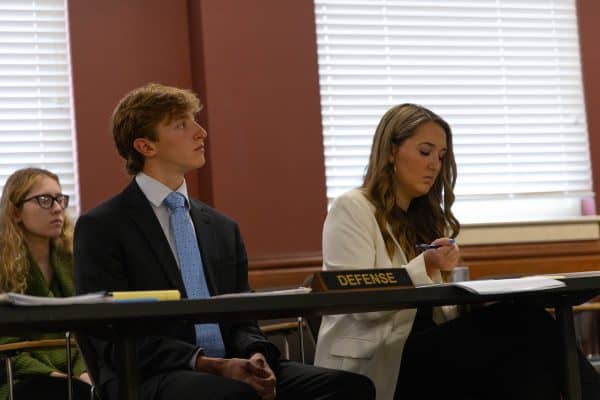How Alabama legislation impacts trans youth
June 30, 2021
Although Pride Month has highlighted the steps taken to celebrate and accept members of the LGBTQ+ community, some Alabama legislation has pushed against the progress made in the last few decades.
House Bill 391
On April 16, House Bill 391 passed the State Senate, and Governor Kay Ivey signed it into law on April 23. HB391 has been described as an “anti-transgender sports bill” for K-12 public schools.
The bill “would provide that public K-12 schools may not participate in, sponsor, or provide coaching staff for interscholastic athletic events at which athletes are allowed to participate in a competition against athletes who are of a different biological gender.”
The only exception of the law is if a sports event specifically includes “both biological genders.”
Under this bill, it is permitted that if no female equivalent of a sports team exists, then a female can play on the male team. However, a “biological male” athlete could not play on a women’s team ever.
Fen Kennedy is a queer, non-binary and trans assistant professor in the UA Department of Theatre and Dance. Kennedy said Ivey’s decision on HB391 was a sad moment for their community, especially since they had been a professional dancer since 2010.
“[I feel] resignation, disappointment and frustration. [These laws] have nothing to do with facts or fairness,” Kennedy said. “The point of these laws is cruelty to transgender people.”
Several UA student organizations opposed the bill directed at trans athletes.
Jackie Elder, a straight, cisgender woman and the former president of OutLaw, an organization for LGBTQ+ law students and allies at the University, said HB391 sends a damaging message to transgender youth in Alabama.
“This bill has less of a material impact [compared to surgeries and puberty blockers] and is more of stating an opinion that the Alabama legislature does not support trans youth and their right to exist,” Elder said.
Sav Campbell, a non-binary senior majoring in computer science and mathematics, is a student representative for Safe Zone, the University’s LGBTQ+ resource center.
“The bill is designed primarily as a way to further marginalize trans people more than anything,” Campbell said.
Kennedy said they believe the bill’s message was not new to trans individuals.
“Transgender people of all ages are aware that people are out there that hate them. We know the hate exists,” Kennedy said. “What is really disappointing is that the people who could protect us from it will not.”
Kennedy said they still face a lot of hatred due to their identity. They recalled an incident in which a woman attempted to hit them with her car.
In a 2016 survey, the Williams Institute on Sexual Orientation and Gender Identity Law and Public Policy found that the number of transgender Alabamians totaled 22,500, or about 0.6% of the state population.
Since 1994, there have been no protections for hate crimes based on a prejudice of sexual orientation or gender identity in Alabama. Based on Alabama Code 13A, the state protects victims targeted in hate crimes based on “race, color, religion, national origin, ethnicity, or physical or mental disability.”
House Bill 1/Senate Bill 10
HB391 wasn’t the only bill targeting transgender youth that passed in Alabama last spring.
Known as the “Vulnerable Child Compassion and Protection Act,” HB1/SB10 introduced criminal penalties to ban hormone therapy and surgery for trans youth. This law would not only criminalize treatment for individuals under the age of 19, but would force school and medical personnel to disclose signs of gender dysphoria to a minor’s legal guardian.
On May 17, the joint House and Senate bills died on the Senate floor. However, Senator Shay Shelnutt, a Republican from Trussville and the bills’ sponsor, has reintroduced the bill for the upcoming legislative session.
“It’s just to stop these surgeries and these drugs on our children,” Shelnutt said. “It’s to protect our children.”
In February, OutLaw published an open letter in The Crimson White calling for Alabamians to contact their representatives and vote against HB1.
“Gender-affirming healthcare for trans youth is lifesaving care,” Elder said. “The rates of suicide among trans youth are very high, and trans youth with access to gender-affirming care are much more likely to be mentally healthy.”
The bill would also require student employees to report to a minor’s guardian if a student felt an inconsistency between their biological sex and gender identity.
Ro Smyth, a non-binary sophomore majoring in environmental science, said the repercussions trans students can face as a result of being outed are serious.
“These kids could be kicked out of their homes because of one conversation at school,” Smyth said. “They could face physical, emotional and/or verbal abuse at home because a teacher was forced to call home about their identity.”
The bill specifically states that medical professionals administering gender identity practices for transgender youth would be charged under a Class C Felony, which could result in up to 10 years in prison.
Likewise, any school employee found keeping this information knowingly private from the child’s caregiver would also be charged with a Class C Felony, risking their right to vote and facing up to a decade in prison.
Alabama Code Title 16 Amendments
On April 27, days after signing HB391, Ivey signed a bill that updated sex education standards and removed anti-LGBTQ+ language. The new bill is effective July 1.
Alabama Code Title 16 previously required sexuality education to emphasize that “homosexuality is not a lifestyle acceptable to the general public” and that “homosexual conduct is a criminal offense under the laws of the state.”
Similar laws are active in other states and are commonly referred to as “no promo homo” laws.
The United States Supreme Court ruled in 2003 that bans on same-sex activity are unconstitutional. However, the Alabama Code was not updated until this year.
Laura Hall, a Democratic representative from Huntsville, sponsored HB385, which removes both sections of the 1992 sex education law.
“I think that the path towards a country where people of every gender and sexual orientation are treated equally is a long and slow one,” Kennedy said. “And I am glad we are over that particular hump in the road, and I wish we could move a little faster.”











